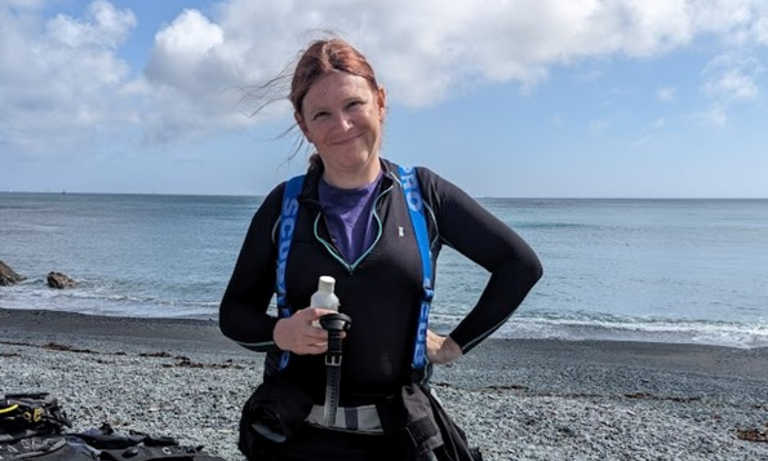Standing up for the veterinary profession
08 Aug 2024
19 Feb 2025 | Charlotte S. McCarroll
Our next LGBT+ History Month role model, Head of Veterinary Education Charlotte S. McCarroll, discusses the highs and lows of her career to date.

What inspired your path into the veterinary profession?
When I distil my motivations down to their most fundamental, I think the word I would use would be ‘curiosity’. It is curiosity that drives me. At school, curiosity motivated me to be quite an all-rounder. I had equal passion for the arts as science – curiosity about the human condition and how we express our innermost thoughts and feelings. But ultimately, it was the science that pulled me in the direction of my career and a well-timed work experience in a veterinary clinic. My curiosity for physiology, how animals function, and how that knowledge can be used to make a positive difference is what eventually won out and took me to this profession.
What has been the most challenging part of your career?
There have been a number of very challenging moments in the quite varied path I have taken. I think the fundamental challenge common to all was learning difficult lessons about myself. Running a veterinary programme with hundreds of students, I have found that by necessity the profession, like life, can become a bit of a conveyor belt. Join a programme, progress, get a clinical job, and onwards. As hard as the profession can be, where I found it got most challenging was when I needed to make the big decisions to listen to myself and step up or sometimes step away. Some of those steps have felt backward, but every step has taught me something about myself, and my profession. The adage of ‘what’s for you won’t pass you by’ starts to ring true the further I get, and everything I have done has brought me here.
What has been the best part of your career so far?
There have been quite a few triumphs over the years. The ironic thing is that they have all followed the lowest lows. I got my place at Glasgow vet school after three successive rejections without interview from my other choices. I passed my finals with distinction after I was told there wouldn’t be a place for a trans woman in the profession and I should ‘stay in the closet’. I got a PhD place when on the darkest, loneliest night of my internship. In my current role, in typical fashion of triumph following lows, after some intensive grilling and it seeming like our programme at Surrey might just be too different to accredit, not only did EAEVE endorse our programme, they gave it 14 commendations. I suppose, we didn’t go into this profession expecting easy and predictable days.
What advice would you offer to someone experiencing difficulty with their sexuality or gender identity?
While it might sound stereotypical to say, it really is true that the profession is not the same as it once was. I started to come out at vet school in the mid-2000s, shortly after the gender recognition act but a few years before the equality act. Most tried to be understanding, but it was sadly seen as a step too far. The profession wasn’t ready, or so they thought. I did end up back in the closet, which wasn’t good for me, but I did try again successfully a few years later. But as I say above, triumph follows the lowest lows. The profession moved on. Partly through people like me being more visible, but also through a general positive societal movement.
It is still very difficult to open up to others about gender identity, especially in the current climate where people feel entitled to tell those questioning their gender identity, they are not only wrong, but a danger to others. However, I take pride in seeing LGBTQIA+, including young trans people, turning up to their classes and succeeding openly as themselves where I could not just a few years ago. It is hard, but your own authenticity is worth it.
Get tailored news in your inbox and online, plus access to our journals, resources and support services, join the BVA.
Join Us Today